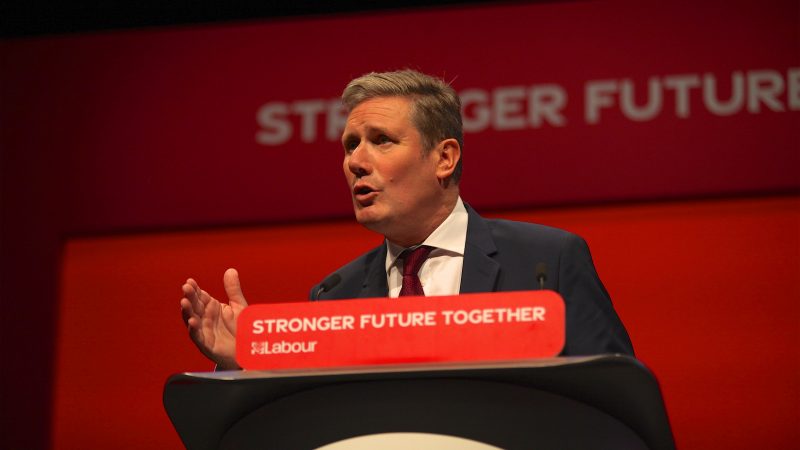
Keir Starmer has warned that the “fantasy economics” being pursued by the Conservative government will mean that households across the country will see an “eye-watering” increase in monthly mortgage payments.
Commenting on Labour’s analysis of Bank of England data, which shows average increases of up to £915 per month in the South East of England and £320 in the North East as mortgage rates rise to 5-6%, the Labour leader said the government has caused many people “sleepless nights” and is “entirely to blame”.
“Liz Truss and Kwasi Kwarteng crashed the economy with their attempts to hand enormous, unfunded tax cuts to those who least need it. The humiliating U-turn they were forced into came too late – the damage had been done. Now we are all suffering the consequences,” Starmer said.
Kwarteng confirmed on Monday that he would be abandoning a plan to scrap the top rate of income tax announced in the ‘mini-Budget’. He claimed the proposal had become a “distraction from our overriding mission to tackle the challenges facing our country” and told people “we have listened”.
Starmer added today: “This was a crisis made in Downing Street but paid for by working people. The Prime Minister must reverse her kamikaze budget, including her totally unfunded £17bn corporation tax giveaway to the biggest companies. The burden of the Tories’ fantasy economics should not fall on working people.”
Analysis by the Resolution Foundation reported that the richest households will still gain around 40 times as much as the poorest from the mini-Budget next year despite the U-turn.
An average buyer taking out a two-year fixed mortgage in the third quarter of 2020 faced an interest rate of around 1.6% and monthly repayments of £1,057. According to the party’s analysis, interest rates reaching 5% would mean those coming off that fixed term will pay £1,432 and payments will exceed £1,550 if interest rates hit 6%.
The average rate on a two-year fixed mortgage has risen to just under 6%, according to data released on Tuesday, amid warnings from brokers that 95% mortgages could be the next casualty of the financial uncertainty caused by the mini-Budget.
Both Truss and Kwarteng had defended abolishing the top rate of income tax before making an abrupt U-turn at the start of this week. The Prime Minister told the BBC on Sunday that the proposal was a “decision that the Chancellor made” but insisted the package of tax cuts represented the “right decision”.
The impact of the mini-Budget initially led to a slump in the value of the pound, as traders expected a sharper increase in interest rates by the Bank of England than previously anticipated. Mortgage providers subsequently moved to rapidly pull hundreds of deals from the market.
Mortgage lenders withdrew 40% of deals last week. Since the U-turn on the 45p tax rate, data shows the number of new 95% mortgage products available has fallen to 129 – less than half the number on sale on the day of Kwarteng’s fiscal statement.
The average new five-year fixed-term mortgage was priced at 5.75% on Tuesday, up from 5.48% on Monday. The average two-year fix has risen significantly from an average of 4.74% on September 23rd and 2.34% at the start of December last year.




More from LabourList
‘Tackling poverty should be the legacy of Keir Starmer’s government’
‘The High Court judgment brings more uncertainty for the trans community’
‘There are good and bad businesses. Labour needs to be able to explain the difference’